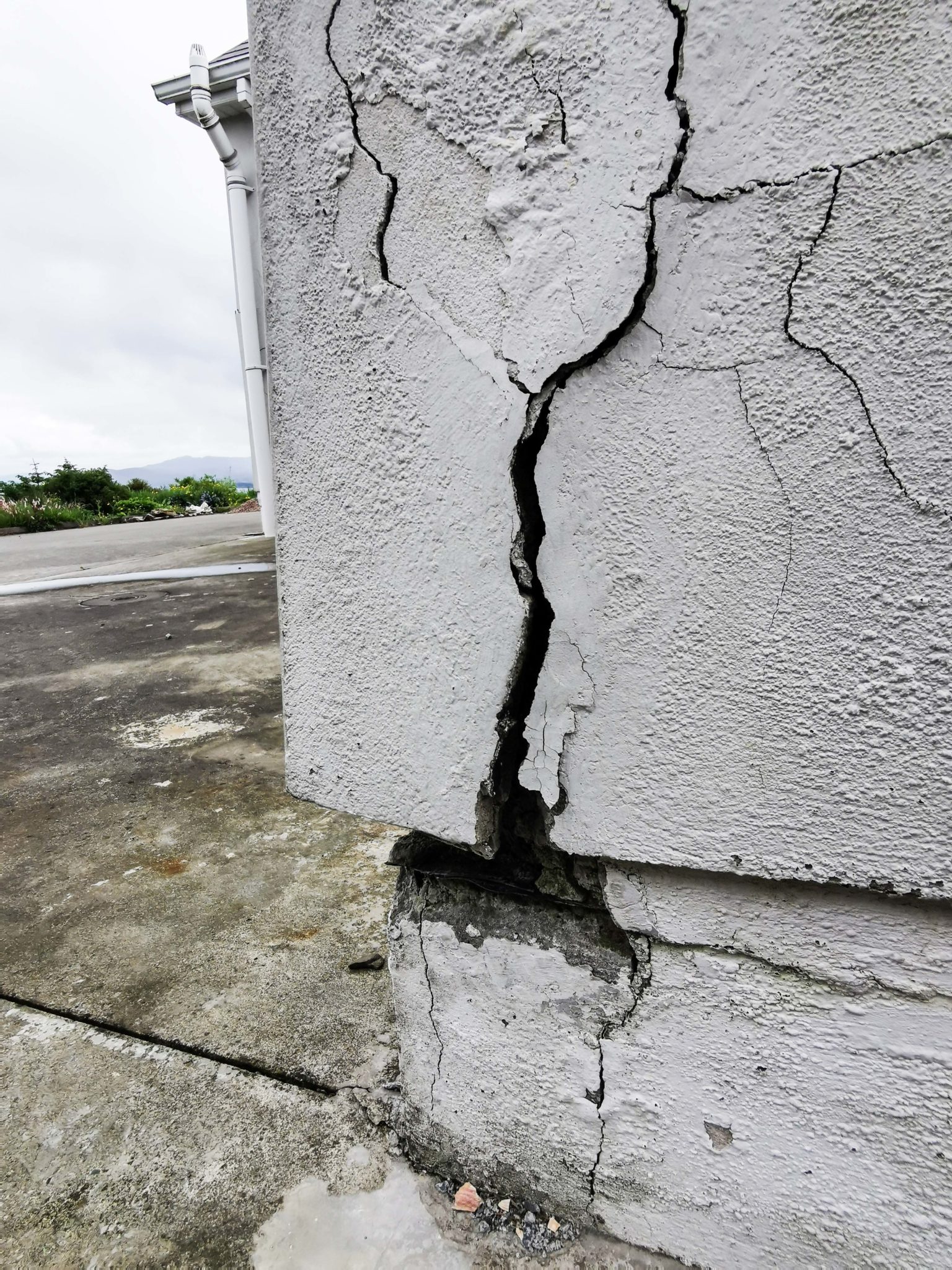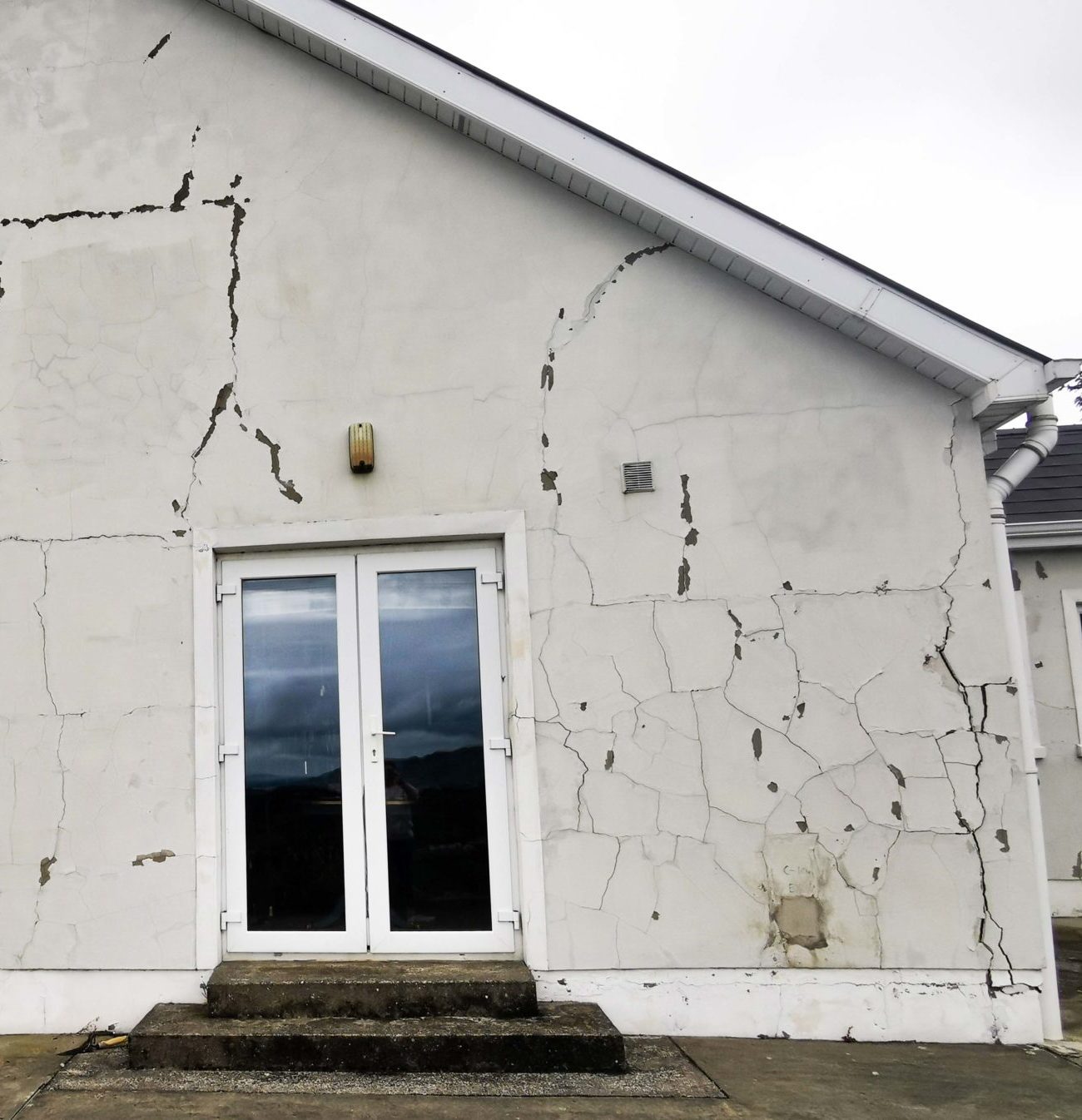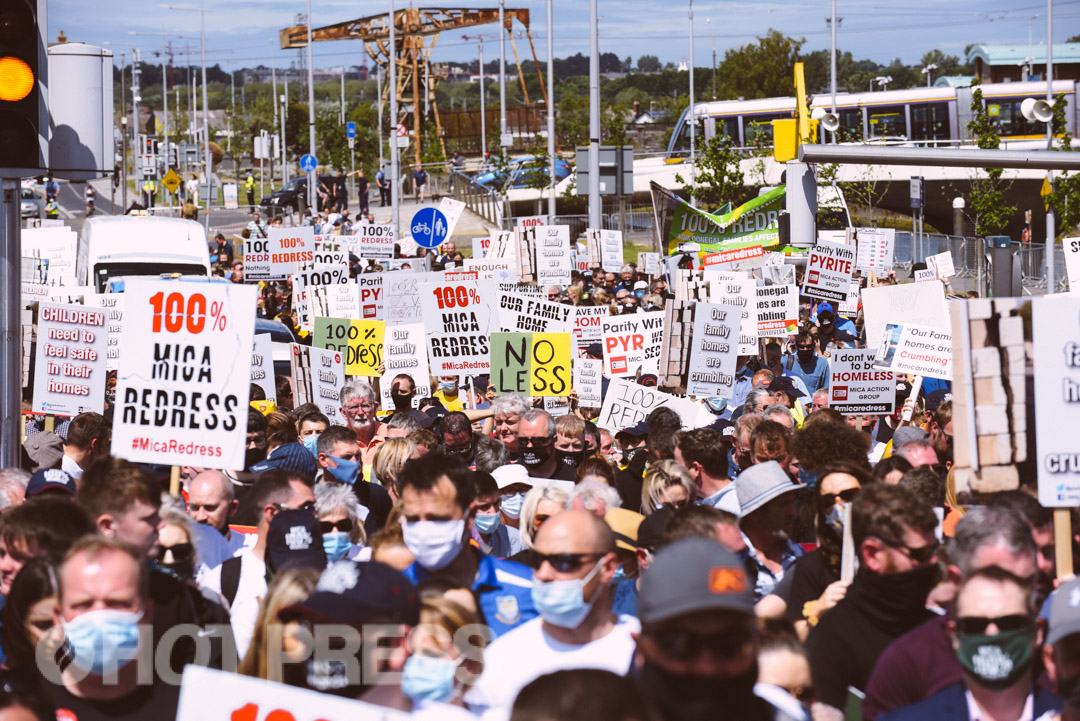- Opinion
- 09 Jul 21

Read Claire McDaid's full interview in the new issue of Hot Press, out today.
Claire McDaid, singer with Donegal alt-rock outfit Don't Fear The Natives, has opened up about the impact the mica scandal has had on her home, her life and her community, in an in-depth interview in the new issue of Hot Press.
“We bought the house in 2006, and we think it was probably built the year before,” she says of her home, located on an elevated area outside Buncrana, Donegal. “Eight or nine years ago, my mum said, ‘Those cracks look abnormal – there’s something wrong’. I told my husband at the time, and he said, ‘No, it’s just the plaster. It’s fine’.
“My mum passed away six years ago. It was around that time that we realised the cracks were getting much bigger.”
Like other homeowners in her area, Claire and her family soon began hearing about mica – a mineral found in defective building blocks, that causes walls to crack and deteriorate. It’s currently believed that between 5,000 to 6,000 homes in Donegal and Mayo, largely built during the Celtic Tiger boom, are affected. As time has gone on, the cracks have only become more severe.

Advertisement
"If somebody did come out and inspect the house, they’d probably condemn it at this point,” she reveals. “We’re at the stage where we’re thinking, ‘Is it safe to live here anymore?’ I won’t let the kids near the back of the house. I always loved entertaining, but I wouldn’t want anyone to visit now. You’d be scared of something happening. “It wouldn’t take any real force at all to knock the side of the wall down now,” she adds. “I don’t think I’d need a hammer – I could kick it down.”

Under the current mica redress scheme, the State is supposed to pay 90% of the repair and rebuilding costs, while the homeowner must cover the remaining 10%. Although Minister for Housing Darragh O’Brien has stated that he hopes to give homeowners “a real 90%”, Claire stresses that this doesn’t go nearly far enough.
“A true 10% is still going to be €20,000 to €35,000,” she says. “Who has that money in the bank? I wish I did, but I don’t! And secondly, why should we have to pay that? We’ve already spent our money and bought our houses – we shouldn’t have to do that again. “People are saying, ‘Why don’t you just get your insurance to pay?’ The insurance aren’t taking responsibility. The block manufacturers aren’t taking responsibility. No one’s taking responsibility.”
As such, mica-affected homeowners are calling for a 100% redress scheme. With a major demonstration in Dublin last month, attended by Claire and thousands of others from Donegal and Mayo, the issue is finally receiving the media and political attention it deserves.
Advertisement
 Thousands protest in Dublin for the Mica scandal. Tuesday 15th of June 2021.
Thousands protest in Dublin for the Mica scandal. Tuesday 15th of June 2021.
However, as Claire points out in the interview, the strain of the entire process is having a major effect on homeowners’ mental health. There’s also the safety aspect, as people continue to live in these deteriorating homes.
“It’s actually really dangerous,” she states. “Someone’s going to get killed. If someone came out to my house today, and said, ‘You can’t live in this house, this house is unsafe. You need to move out’ – if I can’t afford to do that, and pay rent somewhere else, I’d be forced to stay there. People are being forced to stay in unsafe houses.”
With her own home continuing to deteriorate, Claire has already been forced to start making plans of her own.
“On the way home after the march, we stopped to go and look at a mobile home,” she tells me. “My boys are teenagers, and it had the tiniest little rooms, with tiny beds. That’s the reality for us. We could be out there for who knows how long. And we’ve got a house that we spent so much money on falling down.”
Read the full interview with Claire McDaid about her experiences with the mica scandal in the new issue of Hot Press – out now.










